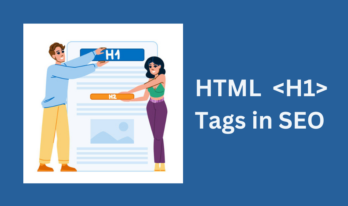Online privacy and security are of utmost importance in today's digital world. Hackers are constantly preying on finding vulnerabilities in the system. Most of the time, you, as a user, might be worried about whether anyone can see your internet traffic when browsing the web. You're not alone in this dilemma.
Thus, it would help if you had tools to give you peace of mind and enhance your digital privacy. Tor and VPN are two popular tools that are commonly used and discussed. However, whether to go with Tor or VPN is quite a debate.
This guide will discuss the critical differences between Tor and VPN, including their functionalities, advantages, and ideal uses.
What is ToR?
ToR, "The Onion Router," is free and open-source software for anonymous web browsing and communication. It relies on a network of servers worldwide. Every server is maintained by an individual volunteer, making it difficult for anyone to keep track of web traffic, location, and more. Tor is mainly used through the Tor browser, a Firefox-based application you can install on your computer.
What is a VPN?
A VPN stands for Virtual Private Network (VPN). It encrypts your internet connection and routes your traffic through a server provided by a VPN provider. Your IP address is masked, and all data sent or received is encrypted, providing online privacy and security. With a VPN, you stay completely anonymous, preventing websites and other advertisers from tracking your online activities and location.
VPNs are not just for individuals and businesses establishing a secure connection but also for remote workers.
Tor vs VPN: The Key Differences
Both Tor and VPN provide a greater degree of privacy and anonymity. Moreover, here are some of their fundamental differences:
Performance
When you use Tor, traffic is routed through random delays, slowing down the speed before it reaches the destination.
VPNs flow traffic through a secure server, masking your IP address and encrypting the communication. They are significantly faster.
Customer Support
Tor is a free, open-source project maintained by the volunteer community. Thus, customer support is entirely community-driven. Tor users can ask for help through mailing lists, forums, and more.
VPN, on the other hand, comes with 24/7 tech support. Most leading VPN providers offer 24/7 support via live chat, email, and phone. Whenever users encounter any technical issue, they can immediately ask the support team members for assistance.
Ease of Use
Learning Tor is not simple. You first need to download the Tor browser and navigate its interface. Non-technical users might need help getting acquainted with this platform.
VPNs are extremely user-friendly. Most service providers offer intuitive apps that let you connect with just a single click.
Centralization
Another critical difference between Tor and VPN is their management. A VPN is a centralized service, meaning the VPN provider manages all the connections and servers.
On the other hand, Tor is decentralized, and a single entity does not control the servers. Alternatively, the decentralized network depends on the global network of single volunteers.
Why Should You Choose a VPN?
Here are some of the reasons you should use a VPN:
-
- The main purpose of using a VPN is to protect all your online activities, such as gaming, browsing, messaging, and more.
- With its super-fast speed, you can use it for downloading and streaming.
- VPN protects users by encrypting data, masking IP addresses, and leaving the location and browsing history hidden.
How to Use VPN with Tor?
Technically, it is possible to use a VPN with Tor for an extra layer of security. It would help if you did that more often while accessing onion websites. But again, using Tor over a VPN is not recommended, as it can slow down the connection speed and create additional complexities. The best thing is to choose Tor vs VPN to enhance your privacy.
Summing it Up: Tor vs VPN
Tor and VPN are online privacy tools to protect you from attackers. However, the choice all depends on your requirements and priorities. Make sure to deeply understand both tools before making a well-informed decision. This way, you can enjoy a safer online experience. To learn more about such insightful topics, visit our blog section now.
Recommended For You:




